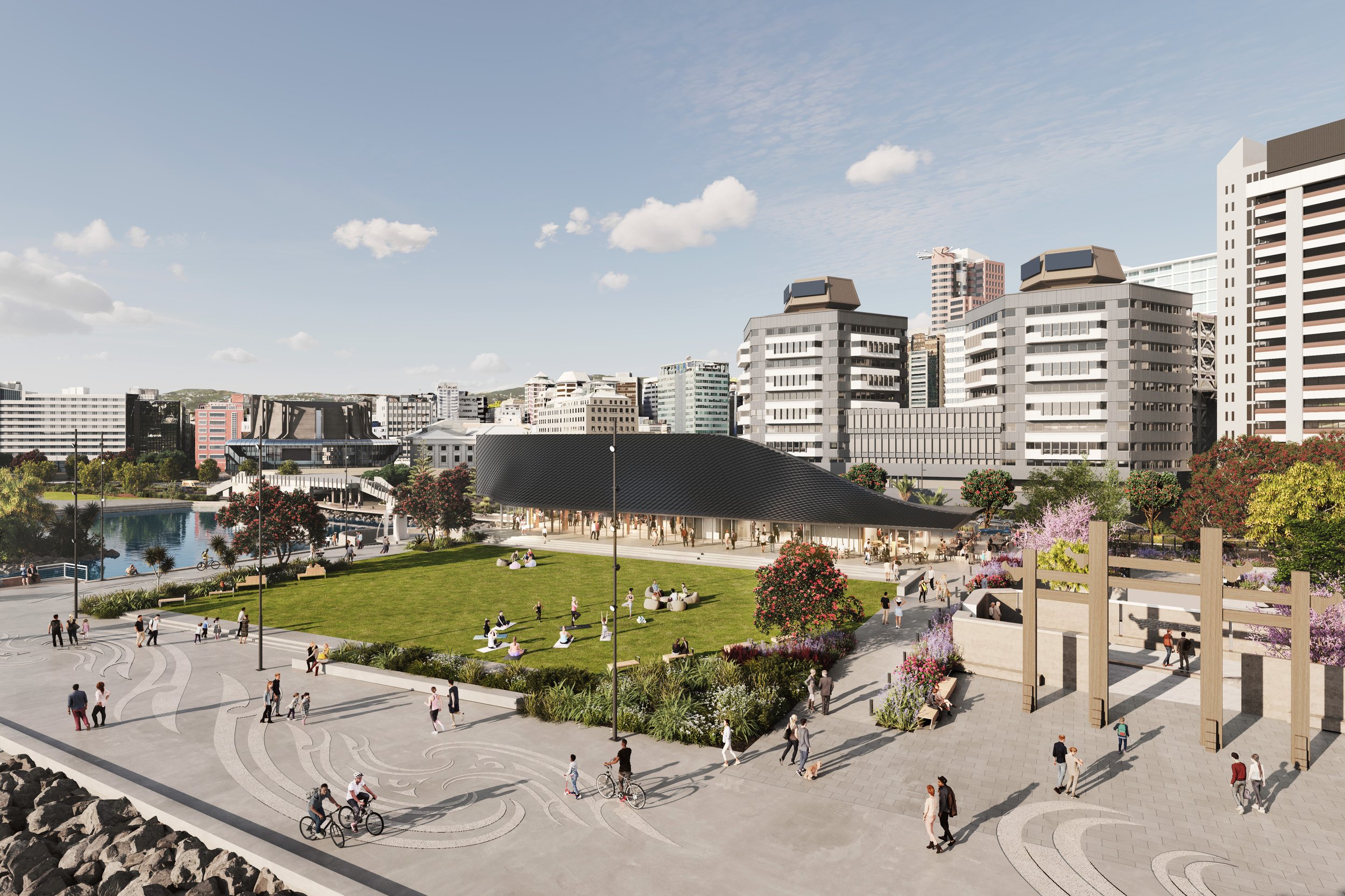The Fale Malae will be a Pacific place that enables collaboration, a place to host and showcase New Zealand on a global stage and support the foundations of economic innovation.

A landmark celebration of New Zealand’s identity as a Pacific nation
There is a compelling case for a Fale Malae in New Zealand. Aotearoa New Zealand is proudly a Polynesian country, profoundly linked to all parts of the Pacific through its shared history, culture, politics and demographics. Our national identity increasingly acknowledges and celebrates this pacific heritage, reflecting that there is no greater interconnectedness or porosity than that shared between New Zealand and our Pacific neighbours, including the Cook Islands, Niue, Samoa, Tokelau and Tonga than any other part of the world. New Zealand’s indigenous population and Pacific peoples (Pasifika) share ancient ancestral connections, and while distinct, are closely linked through kindred origins, language, and culture.
Pacific Island societies are communal, and each society has a centralised place of belonging that is fundamental to their cultural identity. For Pacific cultures, this communal space is a Fale Malae. Our nationally significant Fale Malae will be a tangible statement that recognises and celebrates our place in the Pacific, and national identity as a Pacific Island nation. Providing an authentic, Pacific space at a prominent location will strongly signal that Pasifika and their culture belong and are highly valued as an integral part of New Zealand. This will be a public place, where none exists at present, where history and the story of Pasifika can be told for all New Zealanders, providing a symbolic home for pacific dialogue. The Fale Malae, and the events that occur within it will help to celebrate multiculturalism in Aotearoa.
The Frank Kitts Park site provides a visually stunning, stand-out location in our capital city
With its close proximity to the moana, the proposed waterfront location at Frank Kitts Park strengthens and recognises the importance of the sea within all Pacific cultures through a strong relational link between the Fale Malae and the water. The capital city location further reinforces the Fale Malae’s national significance, sitting within the vicinity of other nationally significant structures and Pacific embassies.
The development of the site for the Fale Malae comes at an opportune time and will be a key contributor to a growing cultural precinct destination that is being developed on the Wellington waterfront. In particular, the Fale would sit alongside our national museum, Te Papa (and subject to completing planning approvals) the forthcoming Chinese Garden project and the existing Te Wharewaka o Pōneke. It would also create a focal point for all New Zealander’s visiting Wellington to connect with multiculturalism at an iconic and visually striking destination and strengthen Wellington’s rich cultural reputation. Situated within the cultural necklace of the waterfront, it will provide an accessible means for locals and visitors to easily engage with Pacific culture and heritage.
There is a national support for a Fale Malae in our capital city. Wellington currently has no venue or Fale Malae to provide for this national symbolism, international dialogue and place of belonging for the peoples of the Pacific and all of our other communities. A Fale Malae in our capital city will reaffirm New Zealand’s national identity as a country of the Pacific Ocean, and pay homage to the contributions of past, present and future generations of Pasifika that call New Zealand home.
A unique opportunity to support building a more multicultural and culturally aware society
New Zealand is becoming an increasingly multicultural and diverse society. The Fale Malae provides the opportunity to strongly support these trends by raising awareness of the deep connection between Pasifika and New Zealand, and how Pasifika communities have strongly contributed to and shaped the New Zealand identity. Developing a Fale Malae will provide a physical representation of the pathway towards higher education and will support a more natural setting for the Trust and University to engage with Pacific communities to advance Pasifika’s education outcomes. Exposing non-Pasifika groups (including businesses) to Pasifika arts, culture, and community will generate improved understanding of Pasifika and support wider government efforts to promote cultural inclusion.
Through cultural architecture, displays of art and community events, New Zealanders will be exposed to their history as residents of the Pacific. Over time, this sense of cultural appreciation will foster more informed and therefore more connected communities. Multiculturalism will also support improved economic growth. Cultural diversity and acceptance builds an environment where people with differing skills and backgrounds are supported to contribute across all levels of society. Supporting diverse participation has been shown to enhance economic prosperity via improved creative thinking and productivity.